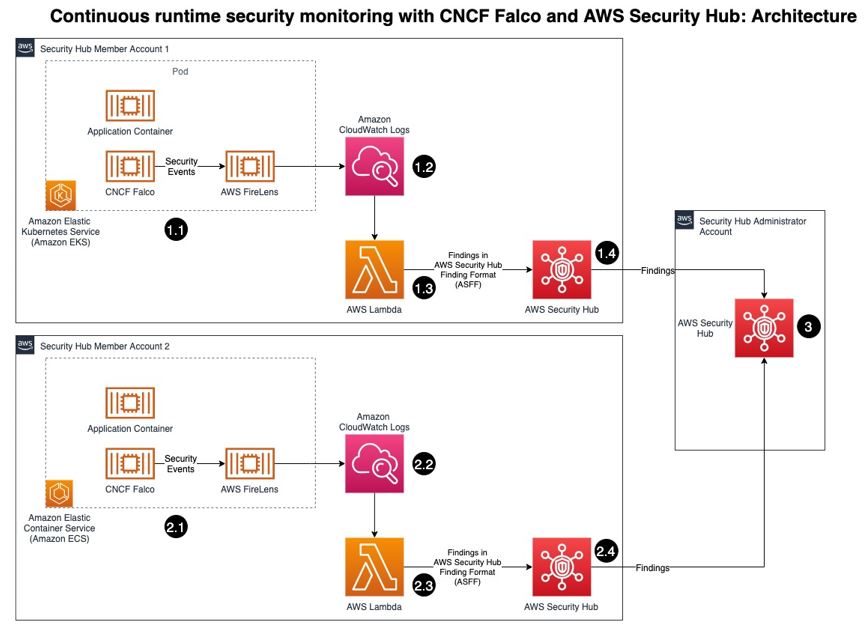AWS Security Blog
Tag: Amazon ECS
Security considerations for running containers on Amazon ECS
August 1, 2025: This post was updated to clarify the security boundaries between containers and instances. July 9, 2025: This post was updated to clarify security boundaries in Amazon ECS. January 11, 2024: We’ve updated this post to include information about Amazon GuardDuty Runtime Monitoring for Amazon ECS clusters. If you’re looking to further enhance […]
Control access to Amazon Elastic Container Service resources by using ABAC policies
As an AWS customer, if you use multiple Amazon Elastic Container Service (Amazon ECS) services/tasks to achieve better isolation, you often have the challenge of how to manage access to these containers. In such cases, using tags can enable you to categorize these services in different ways, such as by owner or environment. This blog […]
Continuous runtime security monitoring with AWS Security Hub and Falco
Customers want a single and comprehensive view of the security posture of their workloads. Runtime security event monitoring is important to building secure, operationally excellent, and reliable workloads, especially in environments that run containers and container orchestration platforms. In this blog post, we show you how to use services such as AWS Security Hub and […]
New AWS Compute Blog Post: Help Secure Container-Enabled Applications with IAM Roles for ECS Tasks
Amazon EC2 Container Service (ECS) now allows you to specify an IAM role that can be used by the containers in an ECS task, as a new AWS Compute Blog post explains. When an application makes use of the AWS SDK or CLI to make requests to the AWS API, it must sign each request with valid AWS access […]
How to Govern Your Application Deployments by Using Amazon EC2 Container Service and Docker
Governance among IT teams has become increasingly challenging, especially when dealing with application deployments that involve many different technologies. For example, consider the case of trying to collocate multiple applications on a shared operating system. Accidental conflicts can stem from the applications themselves, or the underlying libraries and network ports they rely on. The likelihood […]




